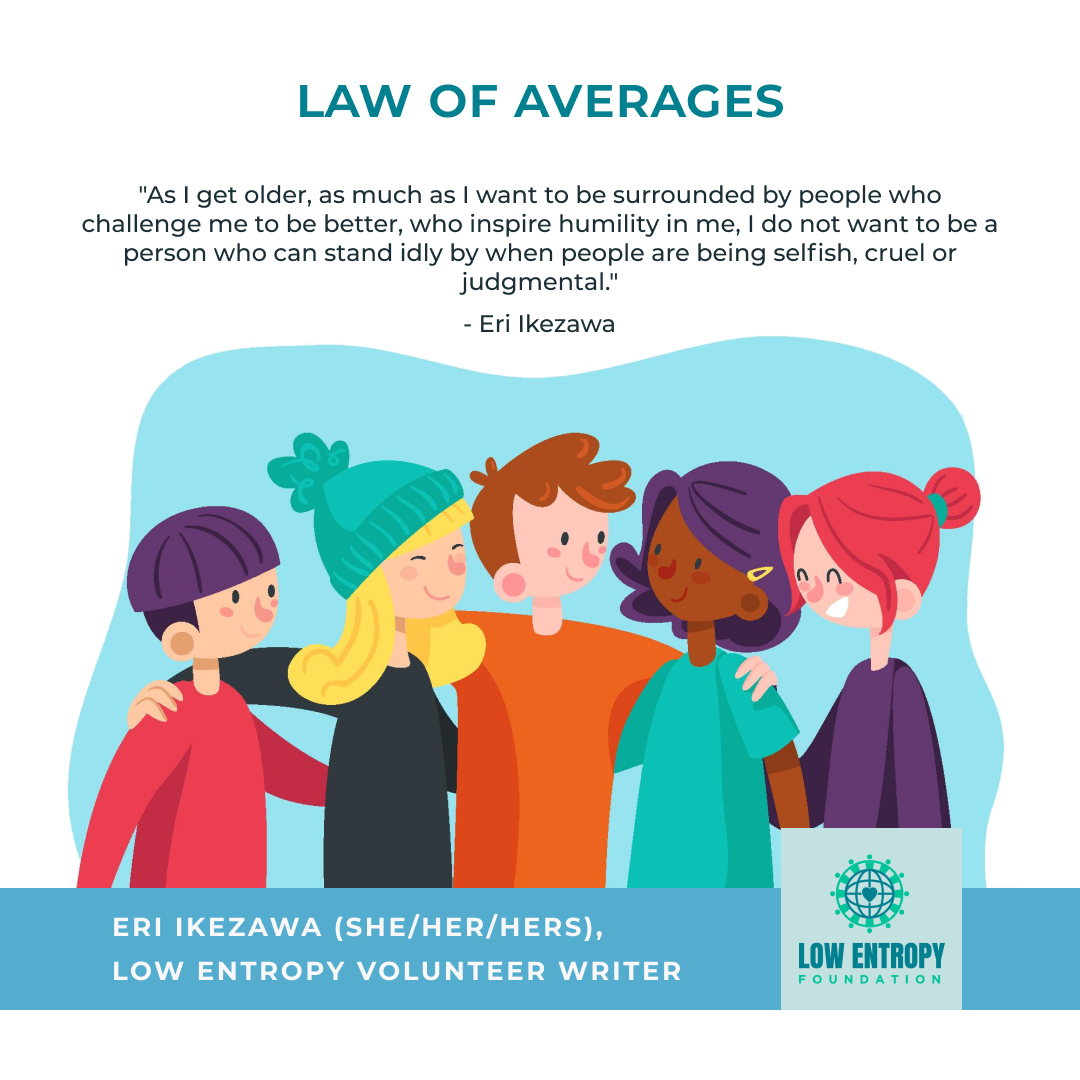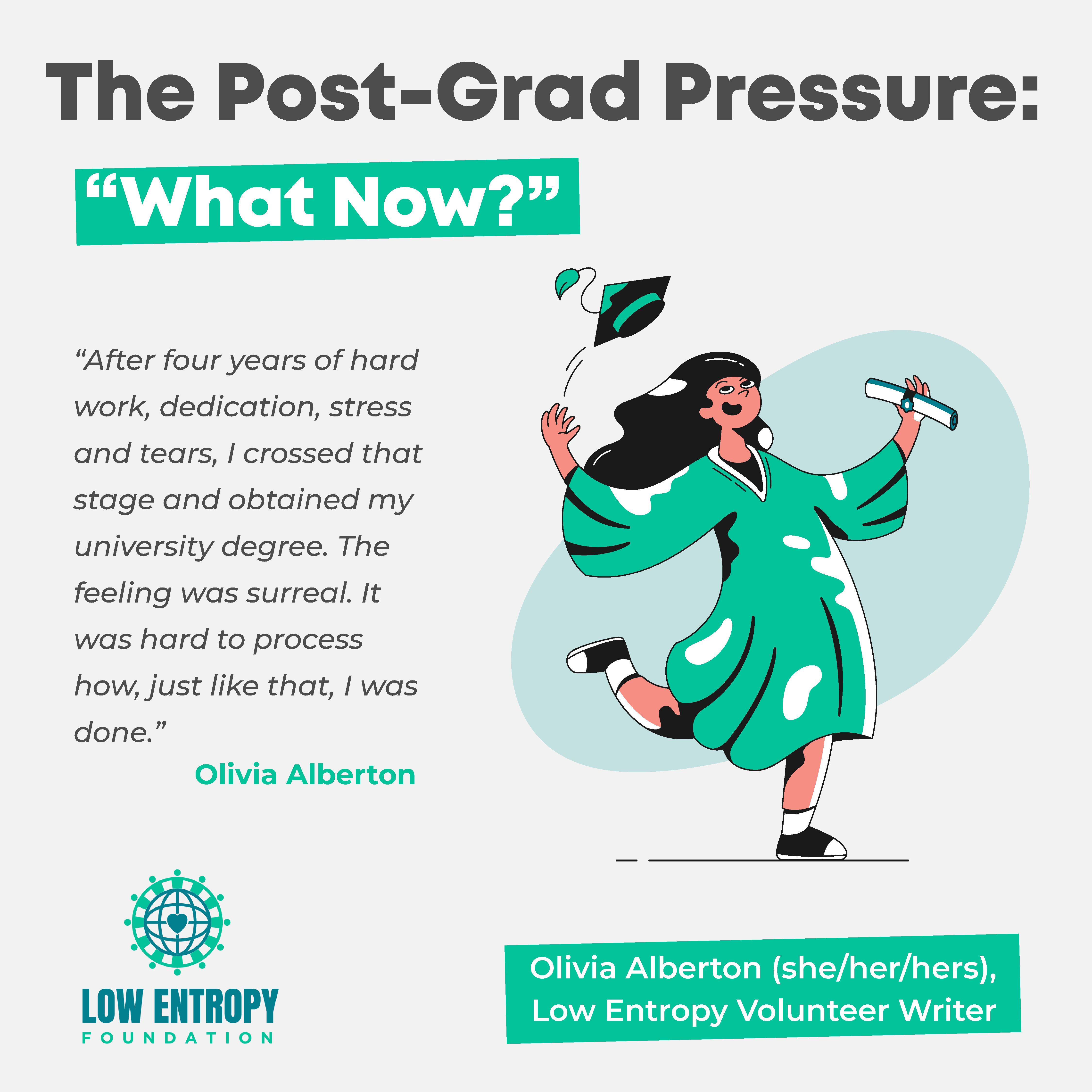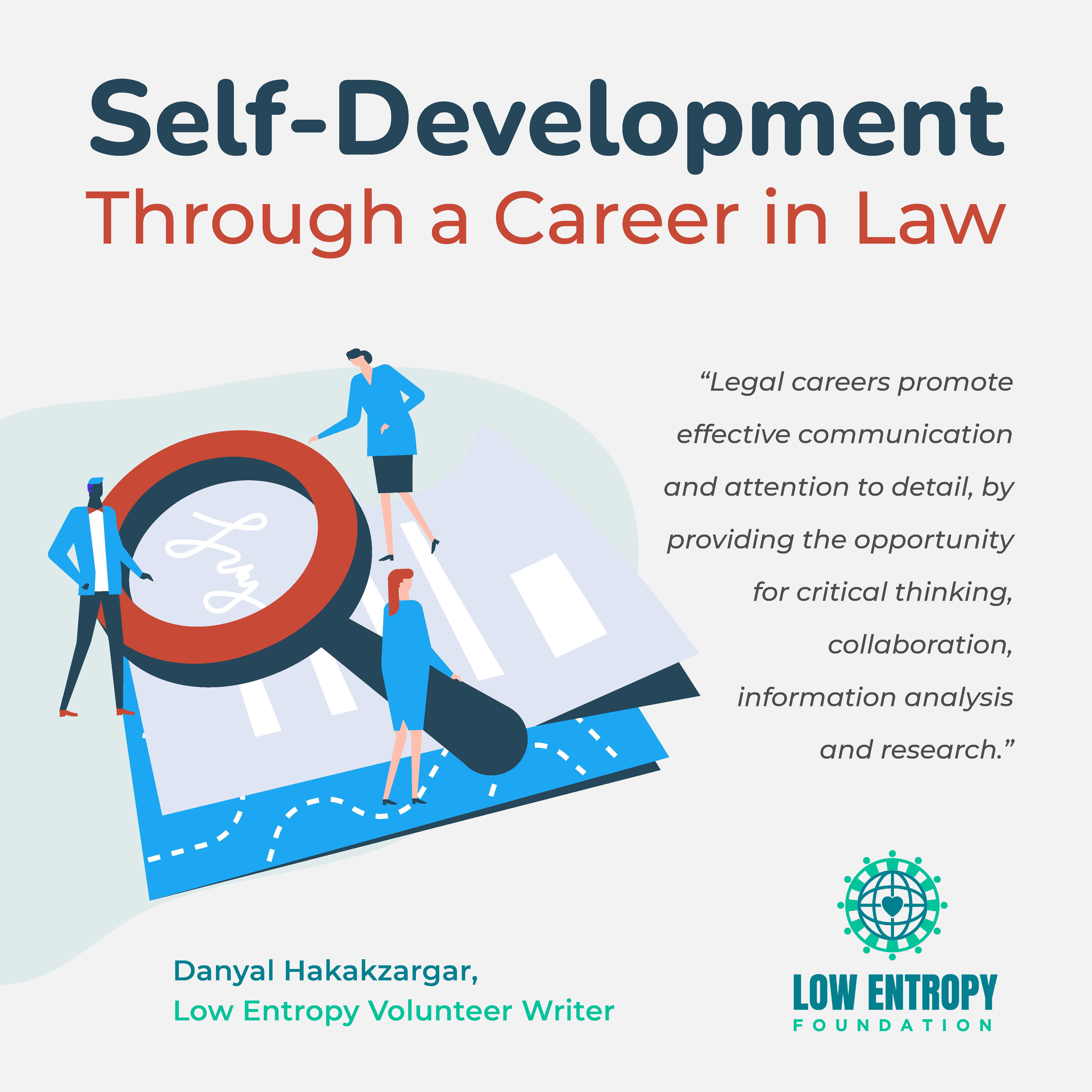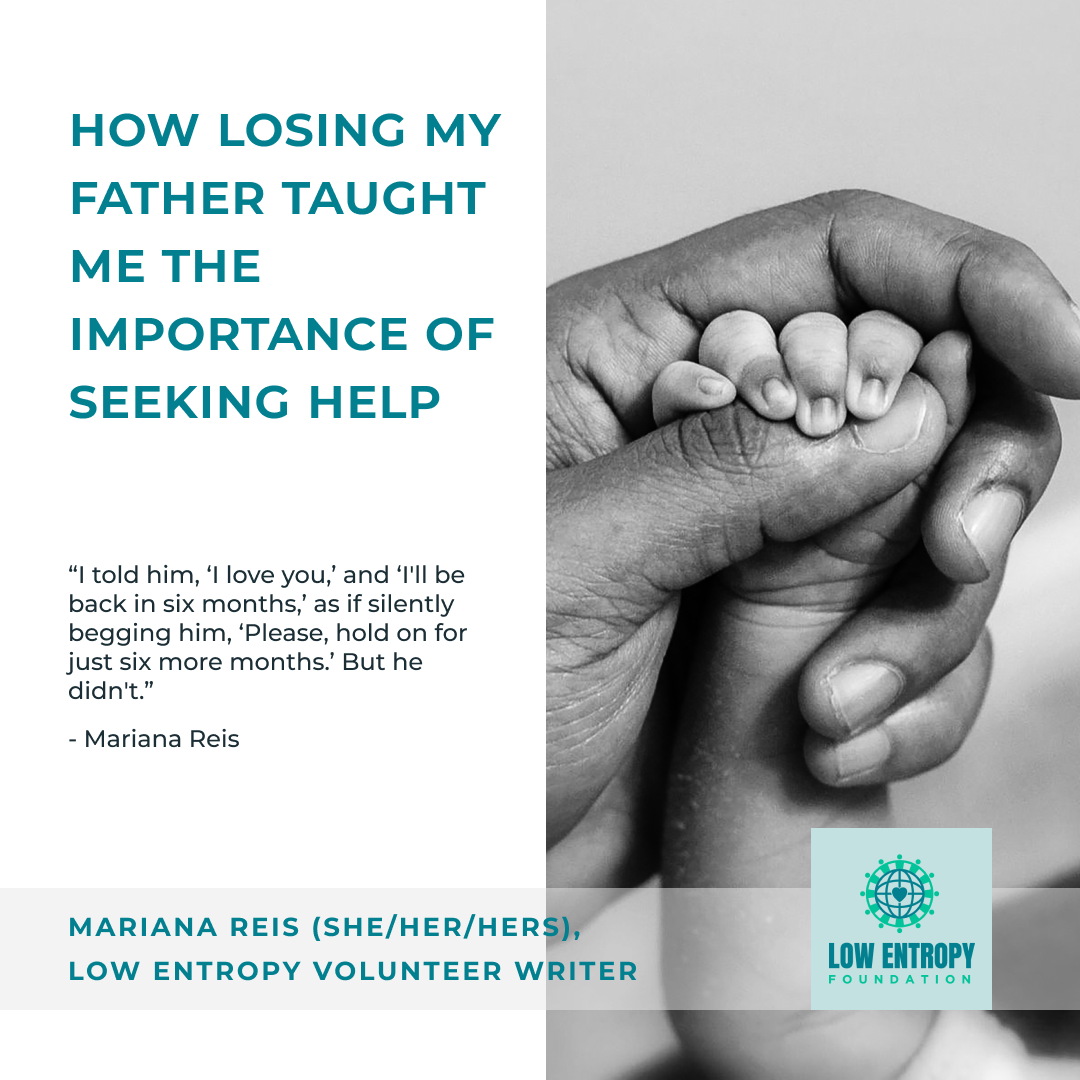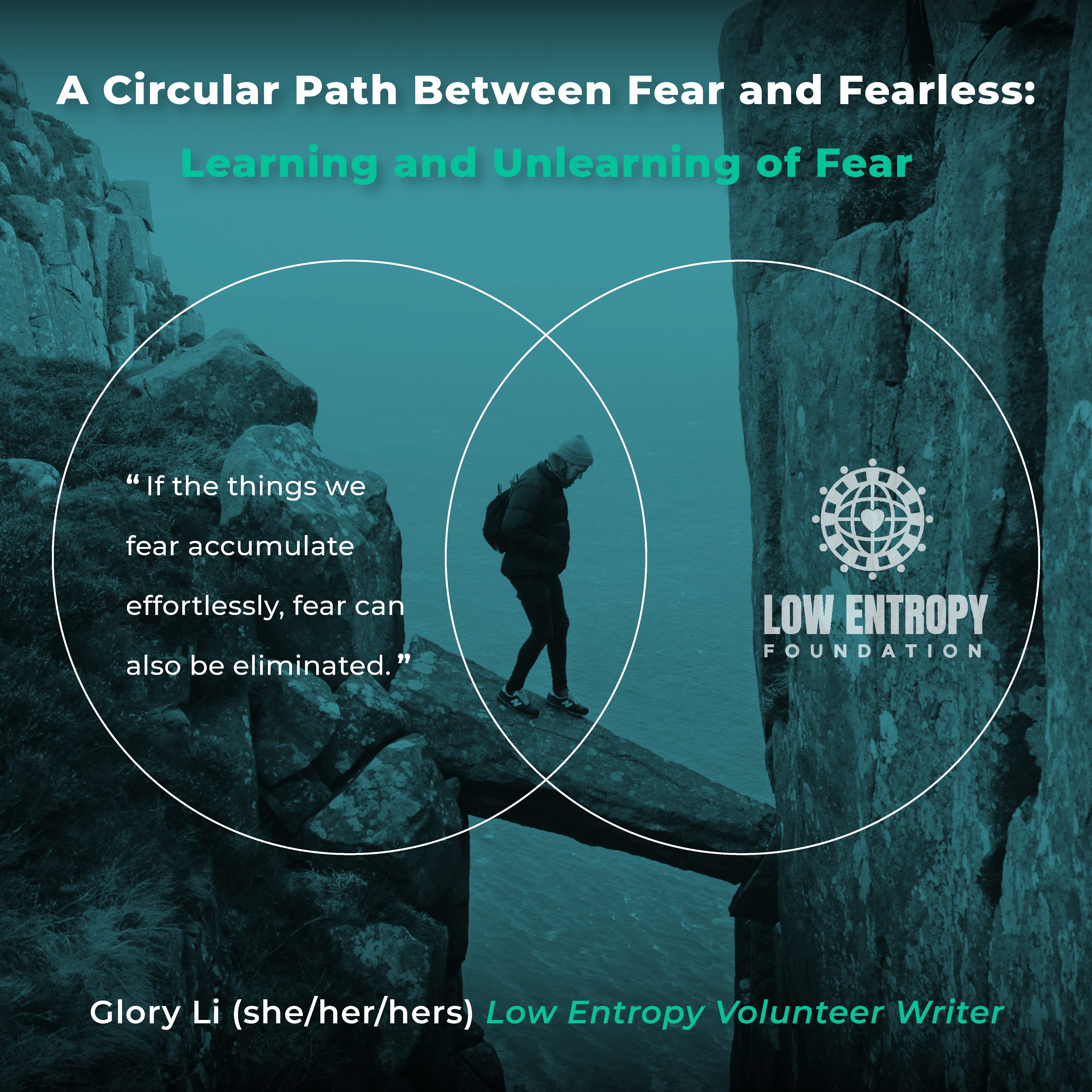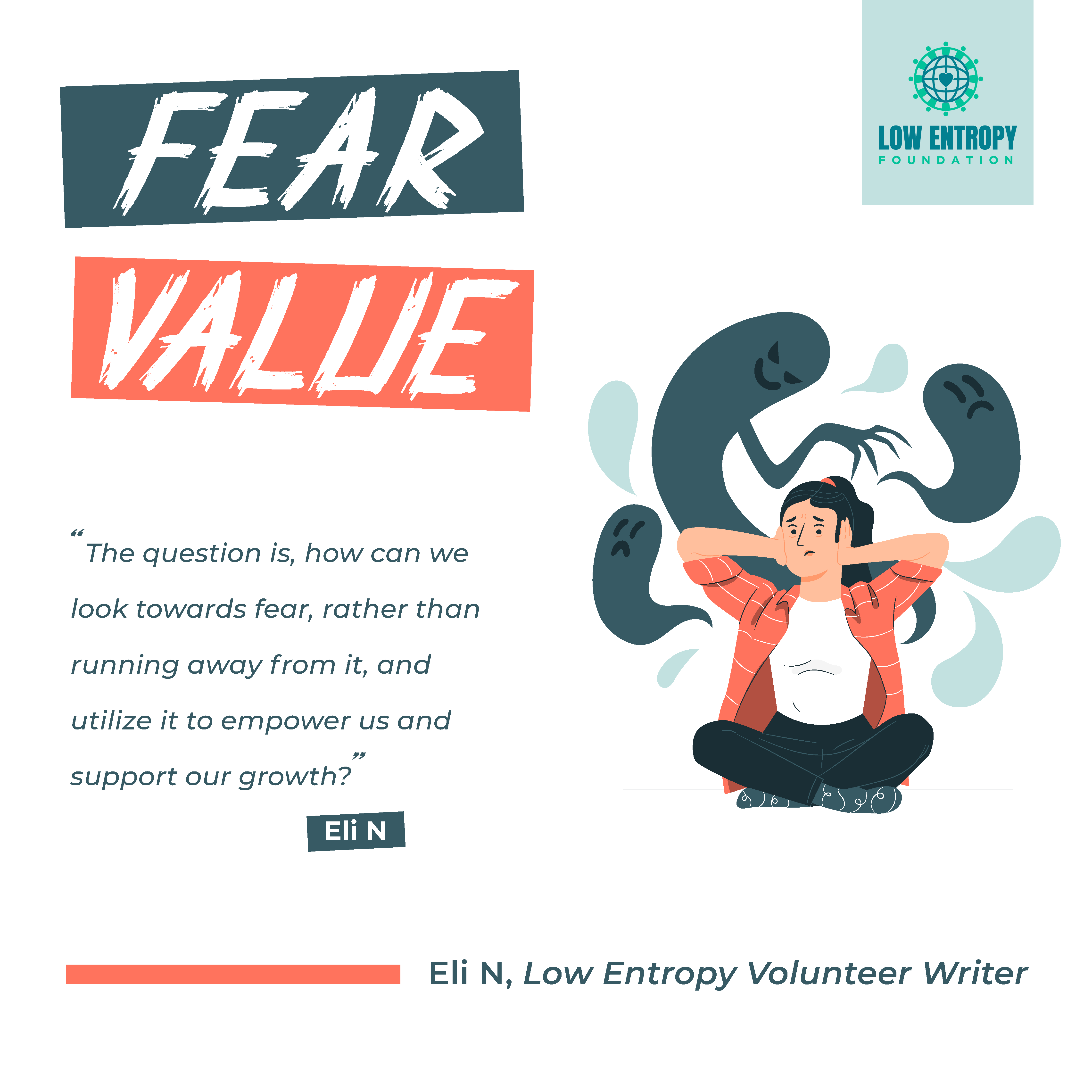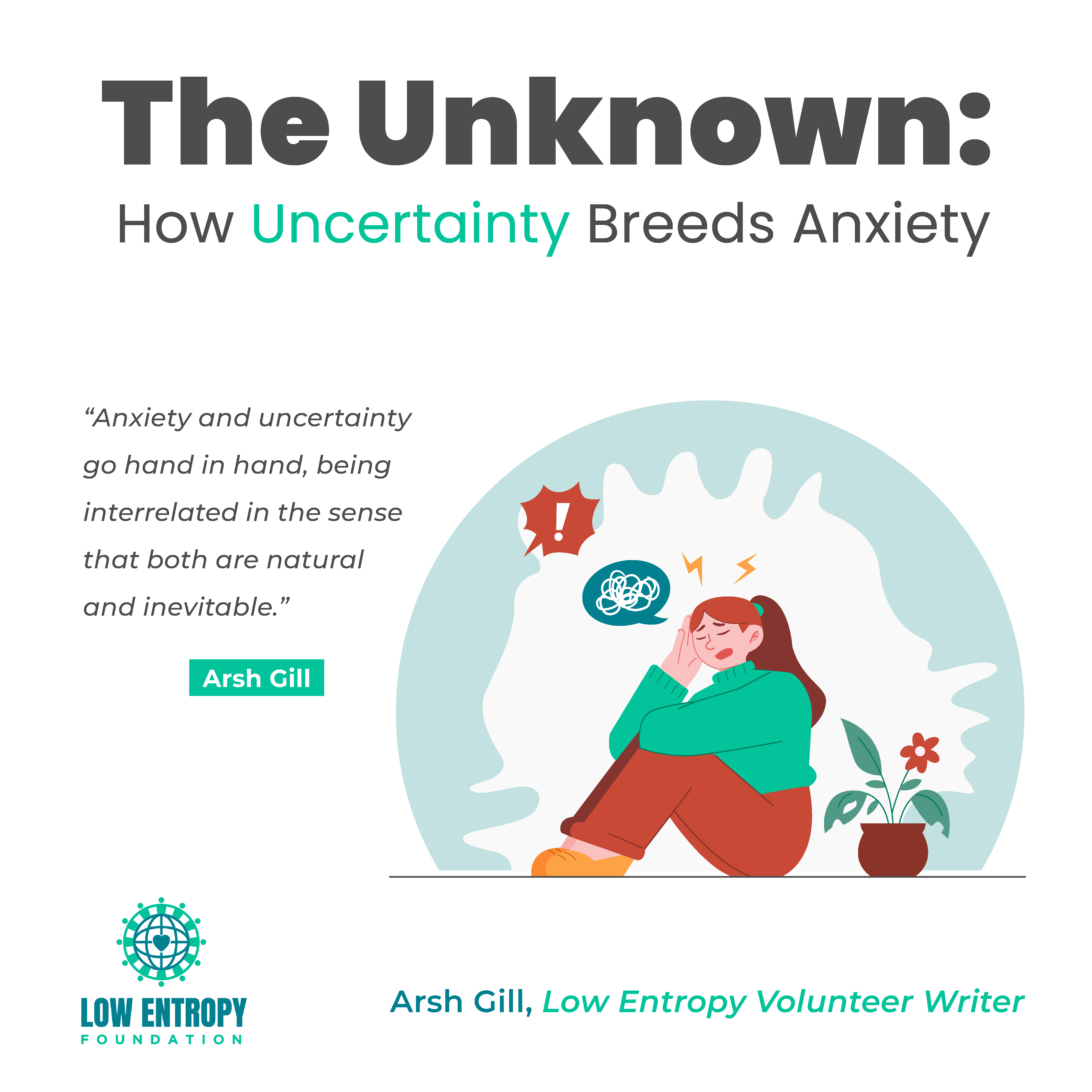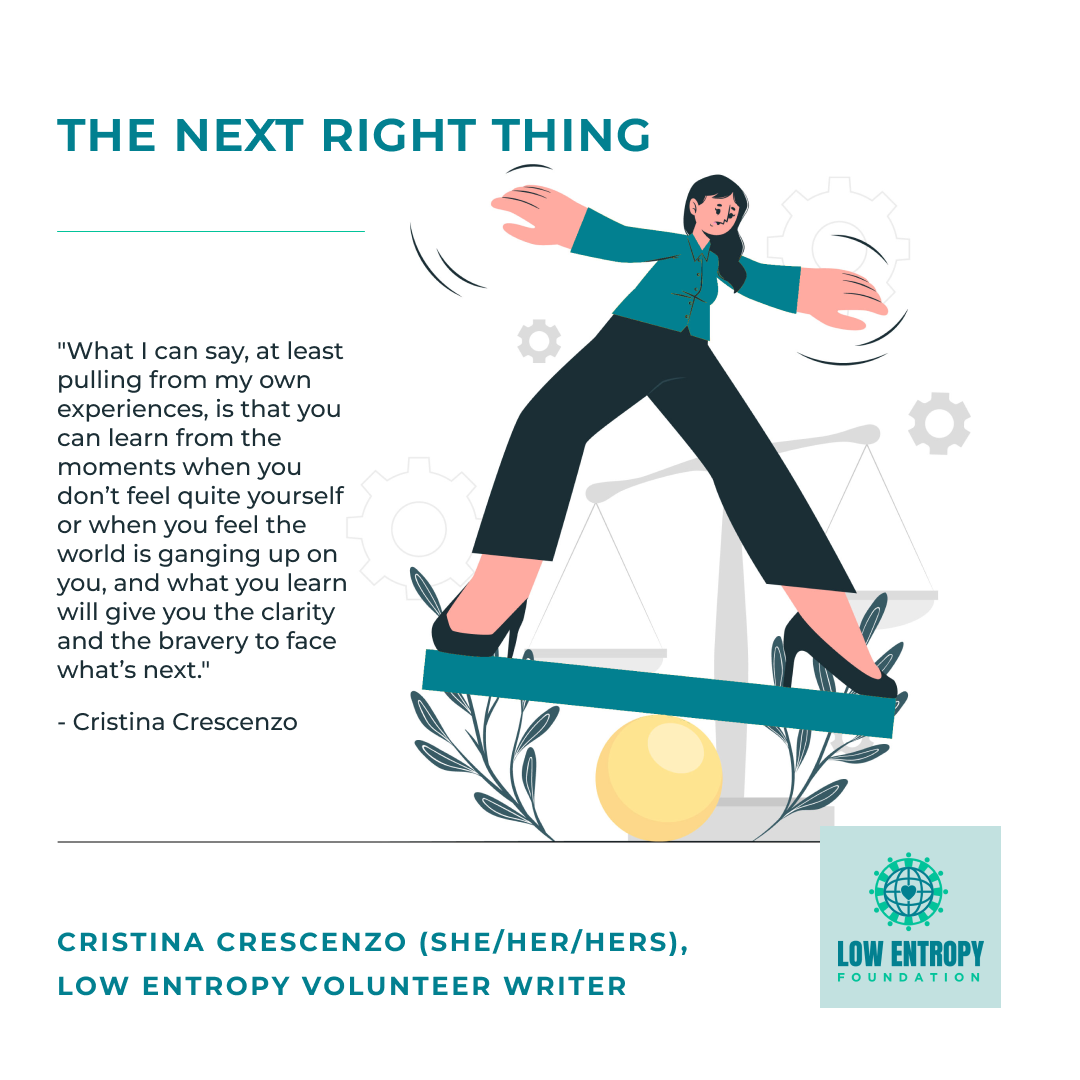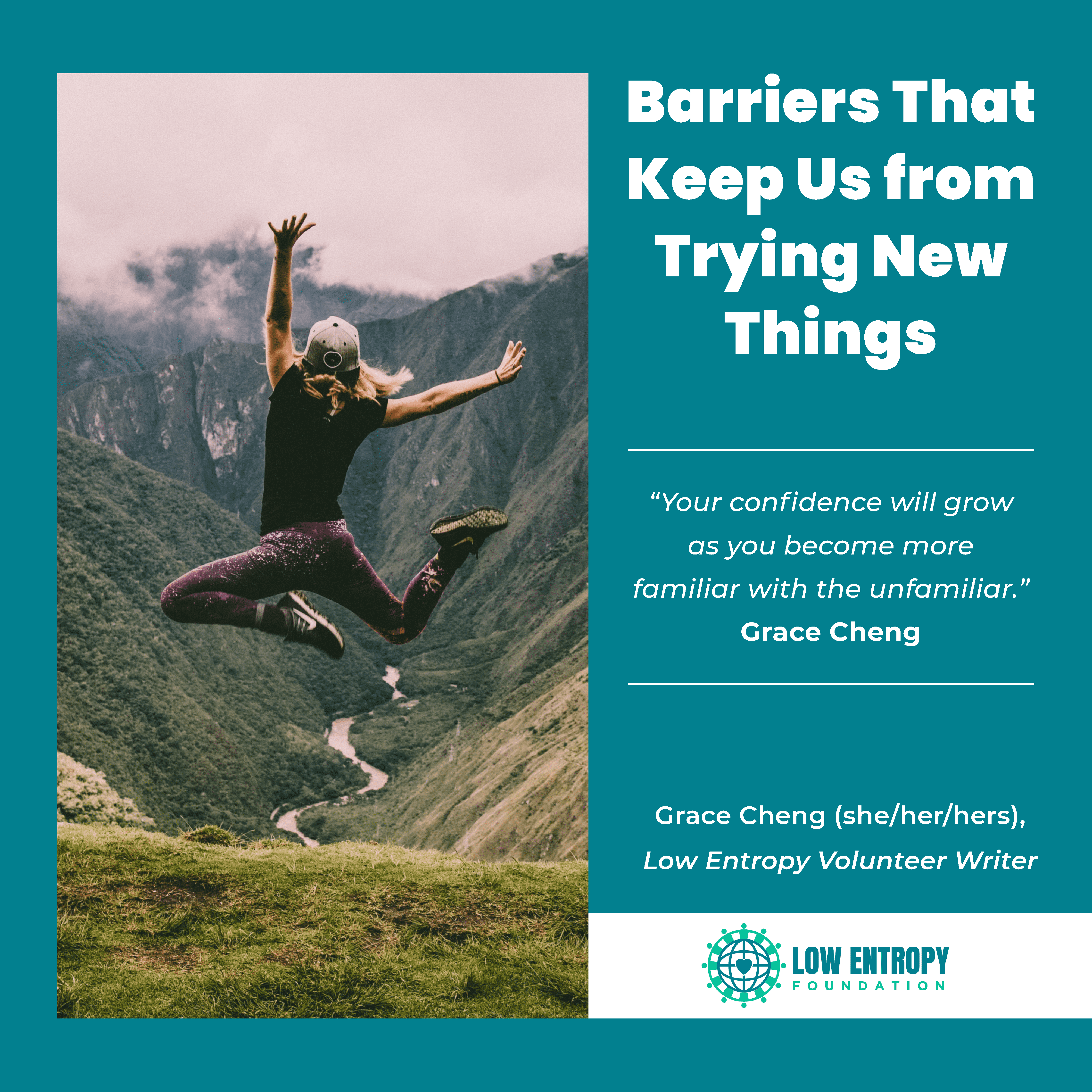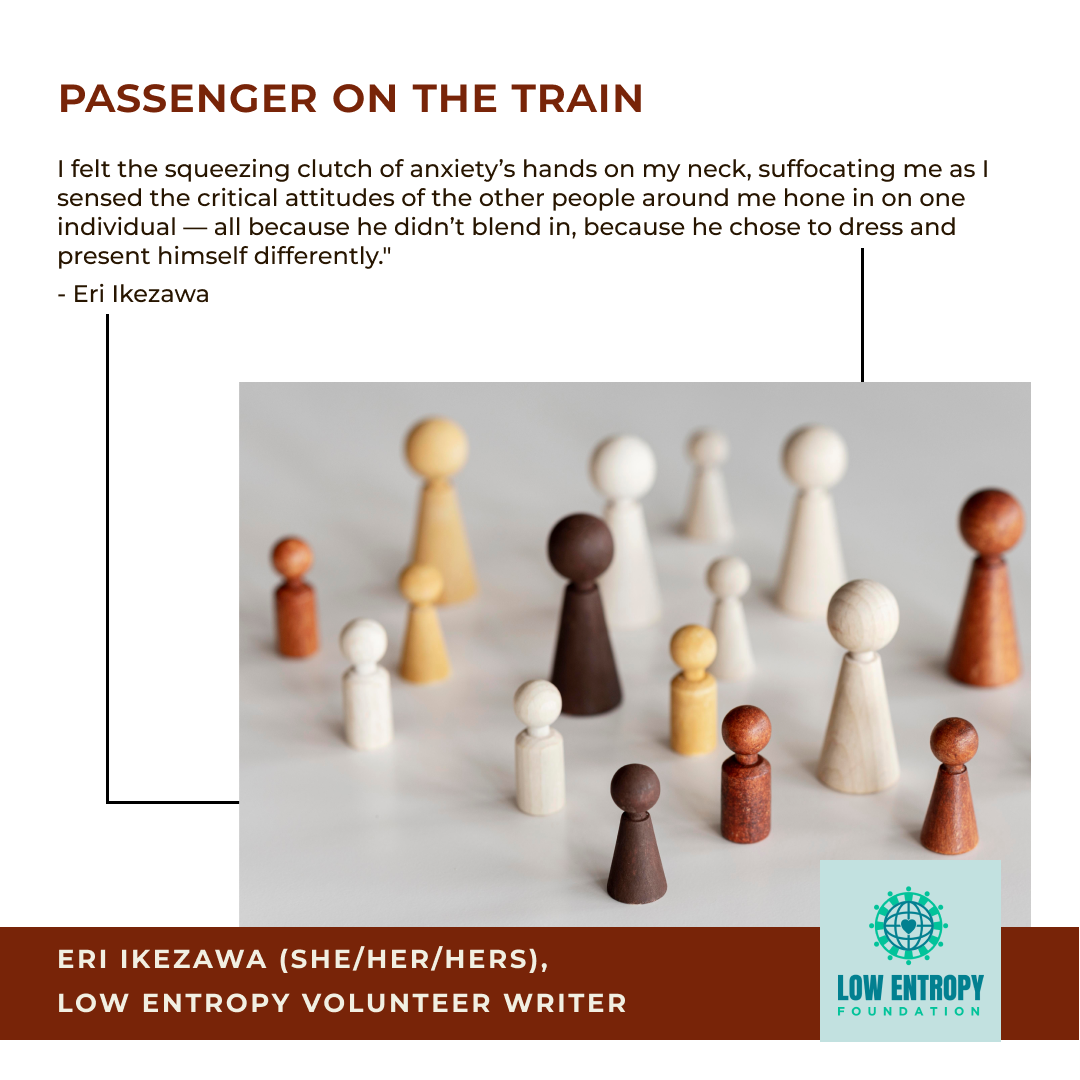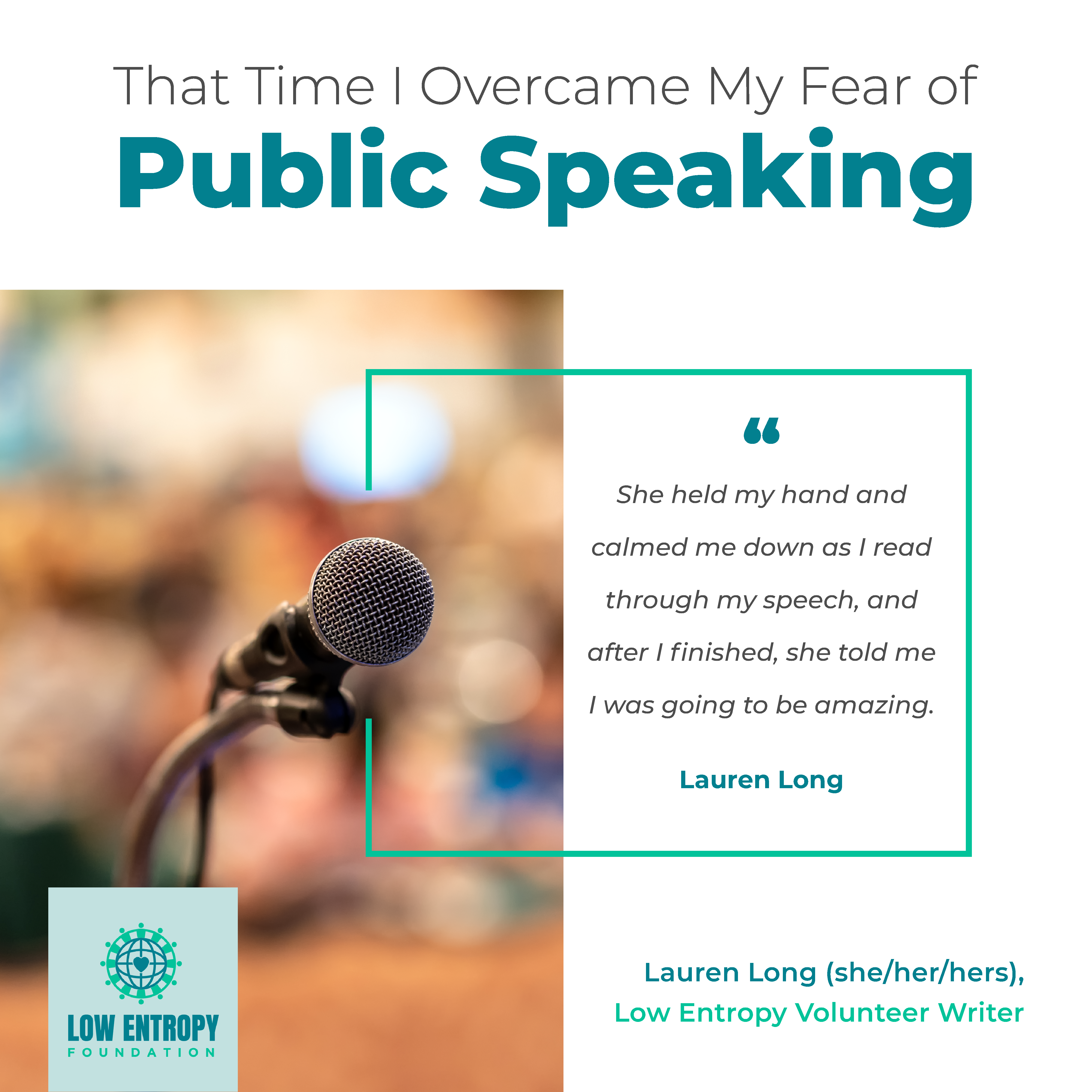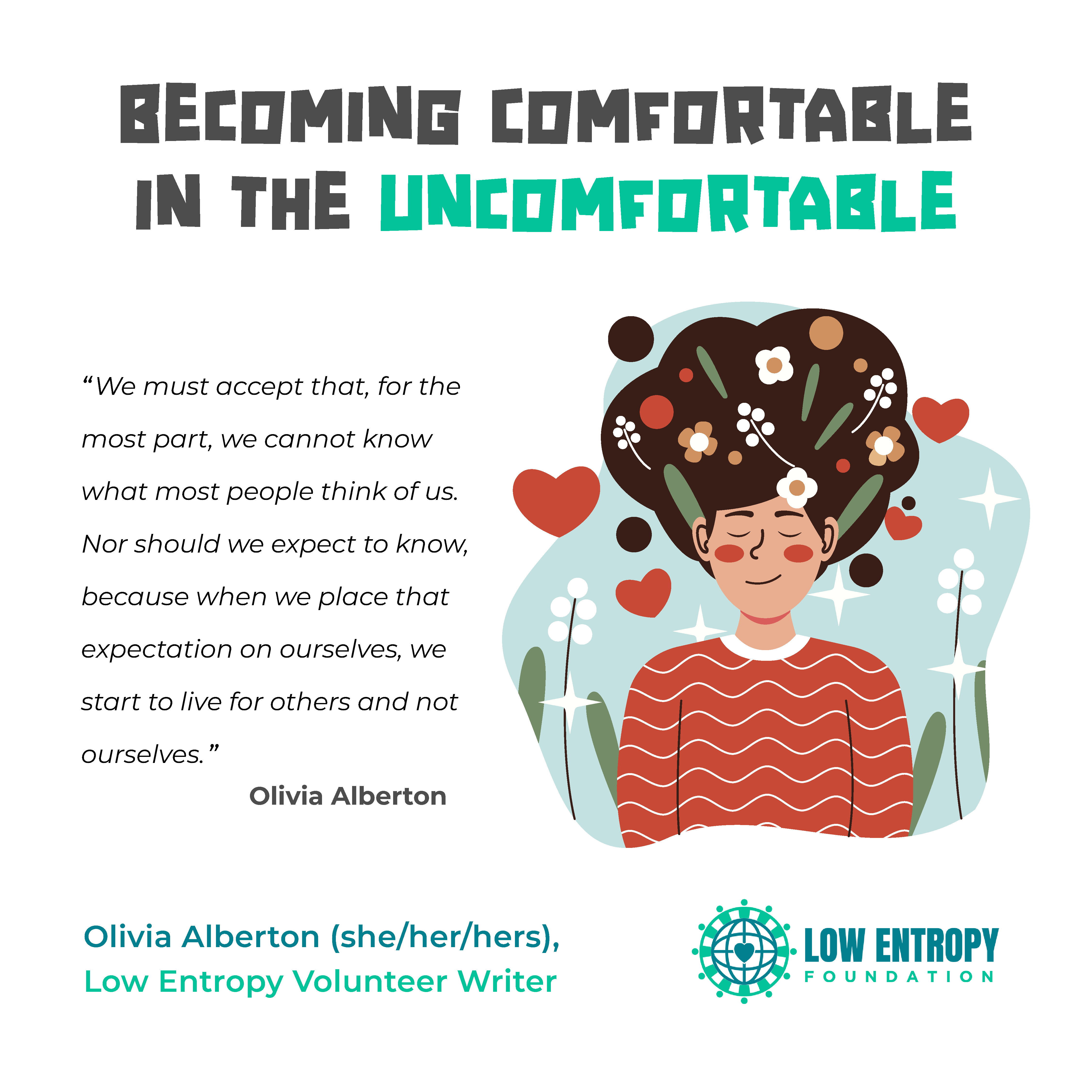Eri Ikezawa (she/her/hers), Low Entropy Volunteer Writer
All my life I have heard my father’s remix on Jim Rohn’s notion that we become the average of the five people with whom we spend the most time. A motivational speaker my dad is not, but he certainly was well-intentioned when he told me as a teenager to try and surround myself with people who would inspire me to better myself.
Now to clarify, Rohn’s idea was conceptualized in connection with the law of averages — which in mathematics stipulates that the sum of a set of numbers is then divided by the amount of numbers in the set. The result will be the central value. Similarly, the people with whom we are most closely intertwined will contribute to the sort of person we are likely to be.
Obviously as a teenager, when one is wading through thorny thickets, staggering over scorching coals and suffocating while swallowing stones for a sense of identity, I did not take too kindly to my father’s stab at guidance. In my clichéd adolescent angst, anything my father said was taken with a grain of salt. Headstrong as a foal trying to find its footing after birth when I was a child, stubborn as a mule when I was a teenager.
But as I grow older, I have begun to see the sagacity in his words. As I figuratively shed disguises that didn’t suit me and molted traits that did not serve me, I really began to prioritize people that incited positive change within me. I began to sincerely value those who did not enable my poor decisions and recalcitrant behaviors. And as these amazing people humbled me by ensuring I took accountability and responsibility for my wrongdoings, my true growth as a person commenced.
All this being said, I do think there is also a certain truth to the idea that birds of a feather flock together. After all, my relationships with the people closest to me embarked once we established superficial commonalities — shared hobbies, recreational interests and so forth. But that being said, the driving force that bonds me to my most precious people are the values we hold. For example, how do we treat people around us? Are we flexible in our worldviews? Do we strive to better ourselves as people? Do we take culpability for our mistakes?
Once I recognized that it was the fundamental principles that we held that I treasured most in the people around me, it also came to my notice that if people really care to listen and cherish those around them, they don’t always have to share common interests with those people. I don’t necessarily share the same music taste with, well, almost any of my friends. Some of my friends are avid sports-loving athletes — I am most certainly not. Others enjoy gaming and I, again, do not. But these differences feel so minimal in the grand scheme of things.
I still want to hear and listen to them speak passionately about the things that they enjoy, because it brings me inherent happiness to see them zealously excited over something. It takes so little to show interest in other people, and it makes me so elated to be invited into an intimate soiree of their joy.
As for me, it’s become integral to distance myself from sources that catalyze sentiments of uncertainty and self-doubt in me. When people find themselves around people who cause them to waver, like little rippling flags in the wind where the shapes on the fabric become perverted distortions, it’s hard not to question who you really are. You begin to wonder why you are content with people who don’t hold the same values as you. You begin to question what kind of person you are if you can be complacent against injustice. Is my love for this person enough that I can discount and be silent against the values they willingly represent and advocate for?
But maybe I’m just speaking from my own personal experiences.
As I get older, as much as I want to be surrounded by people who challenge me to be better, who inspire humility in me, I do not want to be a person who can stand idly by when people are being selfish, cruel or judgmental. I don’t ever want to be a person who is tolerant of intolerance, or silent in the face of oppression or injustice.
I also find I become drained, a puttering engine on its last legs of life and luster, when people exude an aura of negativity and toxicity, insidious and noxious in the way they infect you from the inside out. I used to attempt to bear it under the veil of compassion and empathy, running circles to explain why they needed someone to be in their corner to hopefully incite positive change, but once I recognized the toll it was taking on me, it just wasn’t worth it.
It is funny, isn’t it, how many of us struggle with our parents’ interventions and wisdom when we are angsty teenagers — how the battle for our identity clashes with what now seems like basic common sense and clichés. While my parents and I may operate differently in some ways as the products of our generations and times, so many of our values and perspectives also do align at the same time.
And so now, while writing this, I can’t help but wryly smile at how fervently I argued against my father’s point. It’s possible, when we are teenagers, that we lack the foresight and acumen to make sound social decisions, so perhaps what I believed was true — at that period in my life. But now, I truly subscribe to the belief my father pedalled so hard to pass on, and now I actively promote it myself. At this point in my life, it is quality over quantity.
I just want to be around people who make me feel good — and encourage me to be better.
—
My name is Eri Ikezawa and I have an extended minor in psychology and a major in linguistics. I’m still on the path to quelling questions about myself and the direction I want to head in, but in the meantime, I have always wanted to find a way to help others and contribute to a community dedicated to personal development and self-love.







